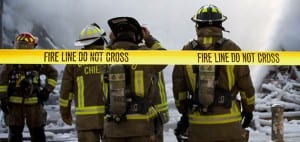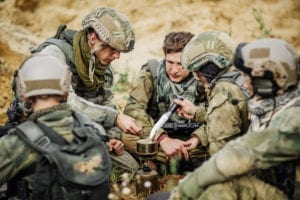The American Knife & Tool Institute Urges All State and Local Authorities to Enable the Continued Operation of Vital Knife Manufacturing and Distribution and the Supply Chains They Rely On
 Detailing the need for knives and tools in critical situations and infrastructure maintenance, the American Knife & Tool Institute is strongly advocating that all state and local authorities include the continued operation of vital knife manufacturing and distribution when making the crucial decisions to protect the individuals in their area during the COVID-19 virus crisis.
Detailing the need for knives and tools in critical situations and infrastructure maintenance, the American Knife & Tool Institute is strongly advocating that all state and local authorities include the continued operation of vital knife manufacturing and distribution when making the crucial decisions to protect the individuals in their area during the COVID-19 virus crisis.
“Due to the crisis, local governing bodies in states, localities, tribes and territories are making necessary critical decisions, including which industries and businesses are essential to keep operational during this crucial phase of responding to the spread of the COVID-19 pandemic,” said John Sullivan, AKTI President, and Director of Compliance at W.R. Case & Sons Cutlery, Bradford, Pennsylvania. “As the nonprofit organization representing the knife and tool industry and the knife community, we can provide insight to these governing bodies on the importance that knives and tools play in the daily lives of first responders, health care, law enforcement, military, and with important infrastructure maintenance.”
While the federal government agency Cybersecurity and Infrastructure Security has published a “Guidance on the Essential Critical Infrastructure Workforce” on their website, it specifically states in bold that “This list is advisory in nature. It is not, nor should it be considered, a federal directive or standard. Additionally, this advisory list is not intended to be the exclusive list of critical infrastructure sectors, workers, and functions that should continue during the COVID-19 response across all jurisdictions. Individual jurisdictions should add or subtract essential workforce categories based on their own requirements and discretion.” The need for knives and tools could fall into several of the suggested listed essential critical infrastructure workforce categories they suggest.
“The knife and tool industry proudly supports heroes in public safety, law enforcement, first response, and health care every day,” said Kurt Ronacher, AKTI Vice President, and President of Boker USA, Lakewood, Colorado. “We provide critical tools that are used daily in lifesaving situations and procedures.”
“Several of our members provide essential tools to the U.S. military community,” noted Jan Billeb, AKTI Executive Director. “The knife and tool industry spans over the entire United States, and we support the position that the knife and tool industry is a ‘National Critical Infrastructure Industry,’ and the employees who work in our industry should be considered ‘Essential Critical Infrastructure Workers’.”
 CJ Buck, CEO, Buck Knives, Post Falls, Idaho, added “The products we make, and that of many of the other companies in our industry, are valuable tools to keep infrastructure operational, plumbing, water and communications working properly, and are essential in agriculture, fishing, and hunting.”
CJ Buck, CEO, Buck Knives, Post Falls, Idaho, added “The products we make, and that of many of the other companies in our industry, are valuable tools to keep infrastructure operational, plumbing, water and communications working properly, and are essential in agriculture, fishing, and hunting.”
According to the trade association’s “AKTI State of the Industry Report,” the knife and tool industry employs over 5,000 plus an additional 23,520 support jobs and generates over $5 billion in total annual economic activity.
 Sporting Knives and Tools in the U.S. Essential to Daily Life
Sporting Knives and Tools in the U.S. Essential to Daily Life
Everyday People Use Knives Every Day

